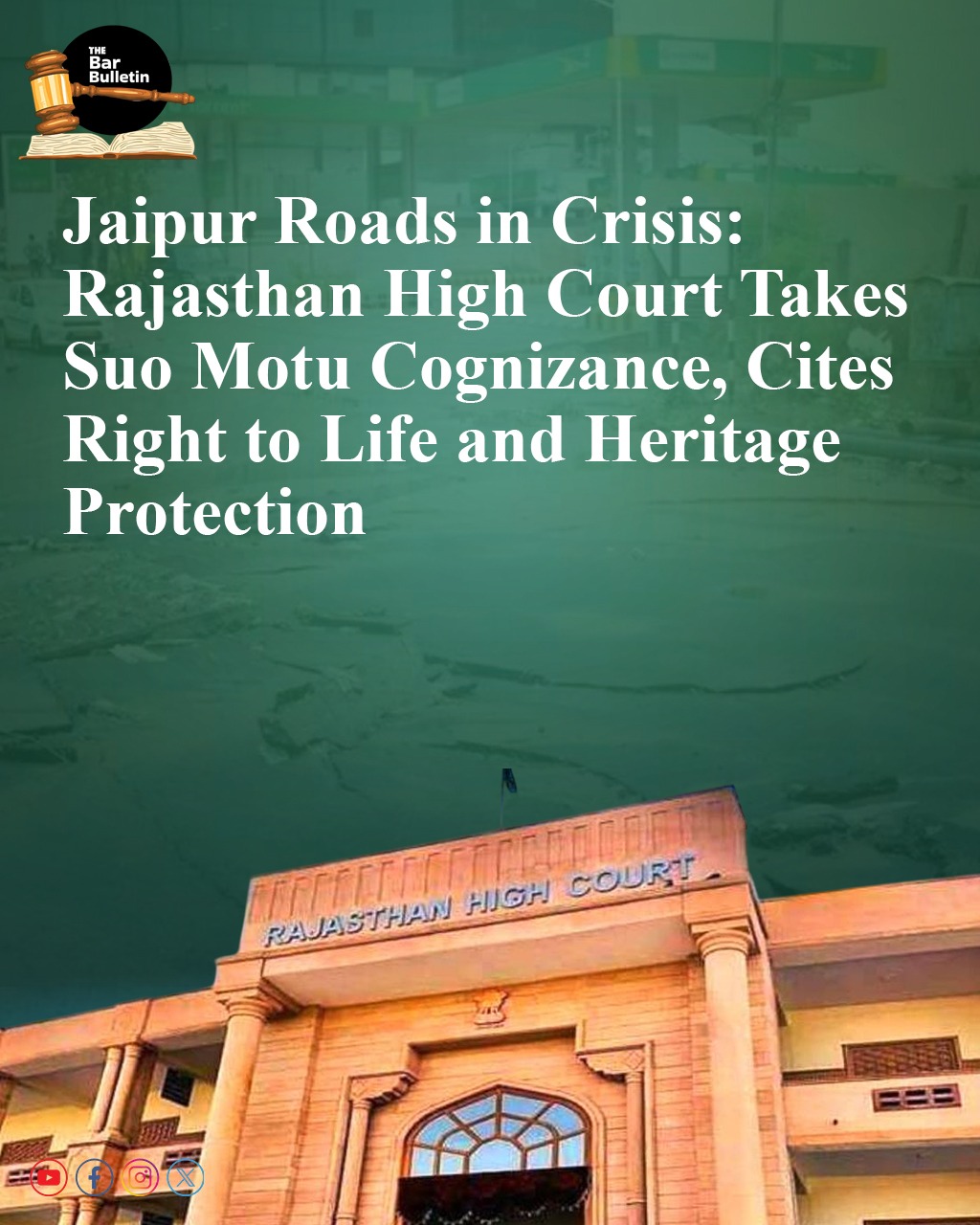The Rajasthan High Court at Jaipur initiated suo motu public interest litigation (PIL) taking serious note of multiple news reports highlighting the crumbling and hazardous condition of public roads in Jaipur city. Justice Pramil Kumar Mathur, presiding over the matter, observed that the poor state of the roads posed a grave threat to public safety and dignity and directly undermined citizens’ rights under Article 21 (Right to Life), Article 19(1)(d) (Right to Freedom of Movement), and Article 49 (Protection of Monuments) of the Constitution.
The Court noted that Jaipur, a UNESCO World Heritage City, attracts millions of domestic and international tourists and is home to centuries-old havelis, palaces, and heritage markets. However, the city is now plagued by degraded roads, chronic waterlogging, and collapsed drainage systems, especially during monsoons, endangering not just commuters but also eroding the city’s built heritage and tourism economy.
Citing newspaper reports from Rajasthan Patrika, Dainik Bhaskar, and The Times of India, the Court pointed to serious lapses in infrastructure maintenance and accountability. It observed that despite allocation of significant public funds, road works were often substandard, with newly constructed roads deteriorating within days, indicating poor material quality, lack of inspections, and minimal enforcement of the Defect Liability Period (DLP). The Court emphasized that contractors and officials responsible must be held accountable, especially where bills were cleared despite visible defects.
The judgment invoked the Supreme Court’s precedent in State of Himachal Pradesh v. Umed Ram Sharma, AIR 1986 SC 847, reiterating that access to roads is integral to the constitutional right to life and movement. The failure of civic authorities, including the Jaipur Development Authority (JDA) and Municipal Corporations (Greater and Heritage Jaipur), to maintain public infrastructure violates fundamental rights and derails the city’s reputation.
In its directions, the High Court ordered:
- A survey of all major city roads by the JDA and municipal bodies within two weeks.
- Submission of a comprehensive action plan within four weeks, outlining timelines for repairs and improvements.
Filing of affidavits detailing the current state of roads, drainage strategies, corrective and punitive actions, and names of officials responsible for lapses in quality control and contract approvals.
The Registry was directed to register the matter as a PIL and enlist the assistance of senior counsels including Mr. R.N. Mathur, Mr. Tanveer Ahamad, Mr. Sandeep Pathak, and Mr. Madhushudhan Singh Rajpurohit. The Court also directed the order to be published in print and digital media to invite inputs from the public and heritage conservation experts.
![]()



